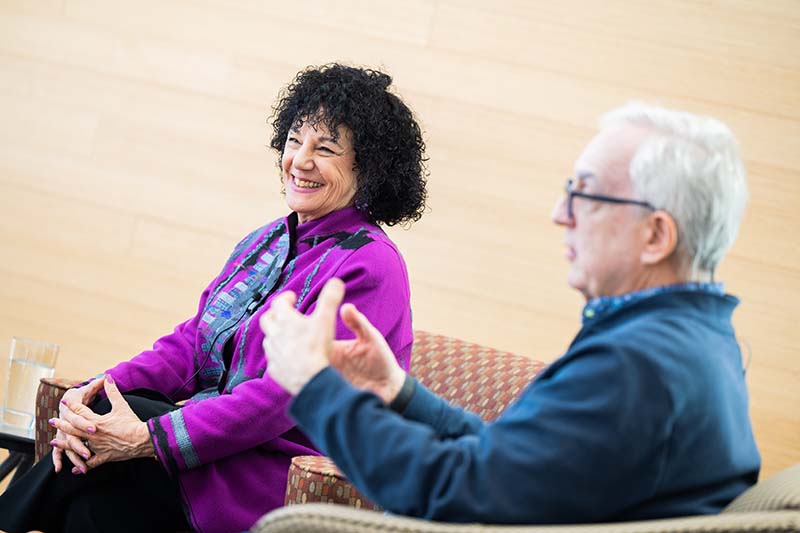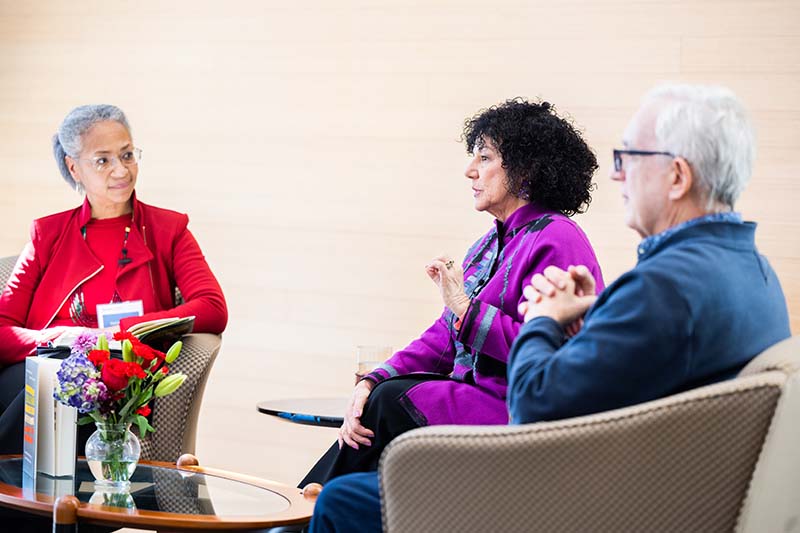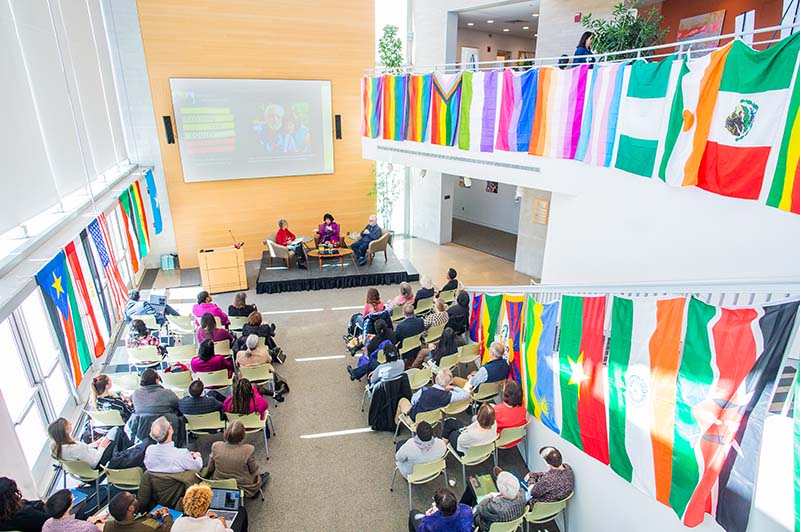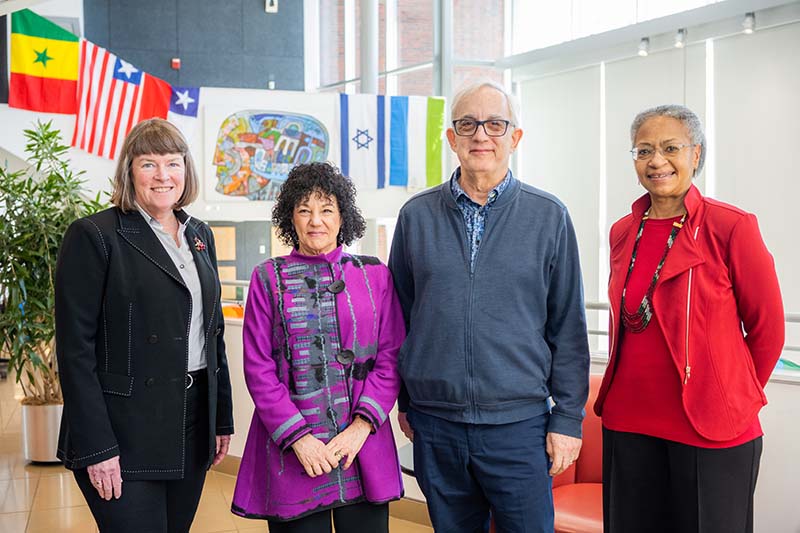
On Mar. 30, Interim Dean Maria Madison hosted a wide-ranging conversation with impact investors Freada Kapor Klein, PhD’84, and her husband Mitch Kapor about their new book, “CLOSING THE EQUITY GAP: Creating Wealth and Fostering Justice in Startup Investing.”
Madison opened the conversation with a discussion of the couple’s respective careers and reflections on their individual “superpowers.” Mitch, a personal computing pioneer and founder of Lotus Software, has a knack for predicting technology trends. Freada, a workplace equity expert who completed her dissertation at Heller on sexual harassment, brings a rigorous intersectional lens and a dedication to equity to their partnership.

The founding partners of Kapor Capital and co-chairs of the nonprofit Kapor Center in Oakland, Calif., Freada and Mitch target their investments in tech companies that close opportunity gaps for communities of color and low-income communities, a niche traditionally overlooked by venture capital (VC) firms. Their work is wide-ranging, including a groundbreaking $1m gift from the Kapor Center to Heller’s Institute for Economic and Racial Equity in 2022 to establish a new initiative on Racial Justice x Tech Policy.
“We do better than 75% of venture capital firms out there, which are only focused on making money,” said Freada, referring to Kapor Capital. “Our model can be used to convince other VC firms that having a diversity lens, a gap-closing lens, can be an effective way to get a return on investment.”

Kapor Capital’s metrics for identifying talented entrepreneurs differs greatly from other VC firms, noted Madison. Rather than emphasizing an Ivy League pedigree, they examine the founder’s “distance traveled,” a notion that Mitch described in greater detail.
“‘Distance traveled’ is important to us,” he said. “Where did a person start out in life, and what hurdles and barriers have they overcome? That tells us a lot about their persistence, their resilience. Those are important character traits to succeed as an entrepreneur. When you use those metrics, the people you decide to invest in changes a lot, and they’re way, way, way more diverse.”

Though the accomplishments of Kapor Capital are a feat to be celebrated, throughout the conversation it became clear that Freada and Mitch remain committed not just to the success of their model, but to long-term structural change, both in their company and in the broader industries of venture capital and tech.
For one thing, they recently turned over the reins to Brian Dixon and Ulili Onovakpuri, who are now co-Managing Partners of Kapor Capital III, now one of the largest Black-led venture capital funds.
“They share a commitment to the core proposition of Kapor Capital,” said Mitch. “We trust that they’re going to carry on in that tradition, and expand it, and evolve it. We couldn’t ask for anything more.”
Traditional VC investors have noticed Freada and Mitch’s success, sometimes clamoring to invest in a successful Kapor Capital-backed startup that they had originally declined. Freada described investors who have called her to lament how their own bias clouded their judgment.
“I think the more that our Kapor Capital businesses succeed, I do think it makes a difference. The number of times we do this, every time a top-tier investor realizes they lost millions or hundreds of millions of dollars, and has to confront their own bias, that’s progress.”
Watch the event recording below:
